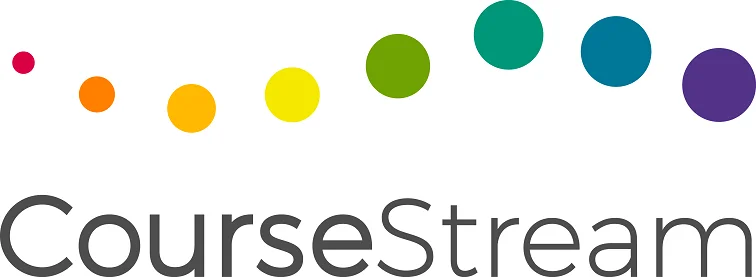Why study this Script Writing course?
Scripts are essential across a wide range of mediums including films, instructional design, advertising, radio, TV, and more. If you enjoy writing across different media this is a great course to start as a professional script writer. This course will teach you how to write for different media, how to include sound effects, how to develop scripts for a range of different audiences, and much more.
This Script Writing course online will help you become the scriptwriter you achieve to be.
Course Aims
- Explain what script writing is and its many applications.
- Describe and compare techniques for plotting the story.
- Explain how to write the outline of a script and then write the script itself.
- Explain how to write good characters in your script.
- Explain the use of dialogue and sound effects in script writing
- Explain how to write for the internet, TV and film.
- Explain how to write for radio.
- Develop scripts for use in educational programs
- Develop scripts for an audience of children
- Develop an understanding of the business of script writin
Lesson Structure
- Introduction – what are scripts?
- Where are scripts used?
- Writing Scripts – what is the story you want to tell?
- One page, one minute rule.
- Visual, behaviour and aural storytelling.
- Show and don’t tell.
- Handling time.
- Formatting script.
- Abbreviations.
- Types of stories.
- What are the specifications?
- Duration of the performance.
- Developing the story-line.
- The Story Pyramid.
- Creating a story board.
- Techniques for plotting a story.
- Fiction and creative non-fiction.
- Non-fiction – Education, Corporate, Presentation Writing.
- Screen play formatting guide.
- Writing the outline.
- Cliff hangers in a script.
- Formatting outlines.
- How to write the script.
- Writing good characters.
- Building characters.
- Character planning.
- Dialogue in script writing.
- Writing dialogue.
- Dialogue tags.
- Tips on writing dialogue.
- Examples of dialogue.
- Time frame.
- Fiction or non-fiction.
- Pace.
- Sound effects.
- Visuals.
- Writing for TV.
- Writing for film/screen-writing.
- Writing for websites.
- Components.
- Voice.
- Music.
- Sound Effects.
- Other points to consider when writing for radio.
- One person script.
- Two person script.
- Multiple persons script.
- Visuals in training presentations.
- Fiction and non-fiction hybrids.
- Children’s cognitive development.
- Implications for the writer.
- Socialisation.
- Gender, roles and stereotyping.
- Writing for advertising.
- What is the purpose of advertising?
- Writing and analysing adverts.
- Summary skills.
- Tips for summarising.
- Writing for infomercials.
- Commercial Opportunities.
- Start your own production business.
- Ethical and legal considerations.
- The law.
Why study this Script Writing course?
Scripts are essential across a wide range of mediums including films, instructional design, advertising, radio, TV, and more. If you enjoy writing across different media this is a great course to start as a professional script writer. This course will teach you how to write for different media, how to include sound effects, how to develop scripts for a range of different audiences, and much more.
This Script Writing course online will help you become the scriptwriter you achieve to be.
Course Aims
- Explain what script writing is and its many applications.
- Describe and compare techniques for plotting the story.
- Explain how to write the outline of a script and then write the script itself.
- Explain how to write good characters in your script.
- Explain the use of dialogue and sound effects in script writing
- Explain how to write for the internet, TV and film.
- Explain how to write for radio.
- Develop scripts for use in educational programs
- Develop scripts for an audience of children
- Develop an understanding of the business of script writin
Lesson Structure
- Introduction – what are scripts?
- Where are scripts used?
- Writing Scripts – what is the story you want to tell?
- One page, one minute rule.
- Visual, behaviour and aural storytelling.
- Show and don’t tell.
- Handling time.
- Formatting script.
- Abbreviations.
- Types of stories.
- What are the specifications?
- Duration of the performance.
- Developing the story-line.
- The Story Pyramid.
- Creating a story board.
- Techniques for plotting a story.
- Fiction and creative non-fiction.
- Non-fiction – Education, Corporate, Presentation Writing.
- Screen play formatting guide.
- Writing the outline.
- Cliff hangers in a script.
- Formatting outlines.
- How to write the script.
- Writing good characters.
- Building characters.
- Character planning.
- Dialogue in script writing.
- Writing dialogue.
- Dialogue tags.
- Tips on writing dialogue.
- Examples of dialogue.
- Time frame.
- Fiction or non-fiction.
- Pace.
- Sound effects.
- Visuals.
- Writing for TV.
- Writing for film/screen-writing.
- Writing for websites.
- Components.
- Voice.
- Music.
- Sound Effects.
- Other points to consider when writing for radio.
- One person script.
- Two person script.
- Multiple persons script.
- Visuals in training presentations.
- Fiction and non-fiction hybrids.
- Children’s cognitive development.
- Implications for the writer.
- Socialisation.
- Gender, roles and stereotyping.
- Writing for advertising.
- What is the purpose of advertising?
- Writing and analysing adverts.
- Summary skills.
- Tips for summarising.
- Writing for infomercials.
- Commercial Opportunities.
- Start your own production business.
- Ethical and legal considerations.
- The law.
Enrol Now
- Experienced Tutor support
- Certificate sent to you
- Online study (Printed notes available)
- Self paced - no set timetable
- 12 months to complete course
From: $25.00 / week for 26 weeks
Get a Free Info Pack!











